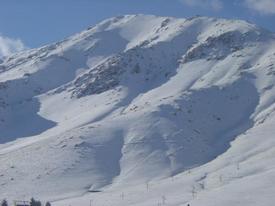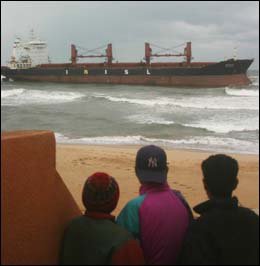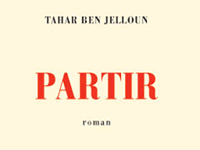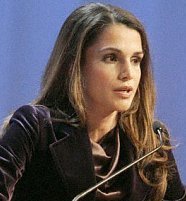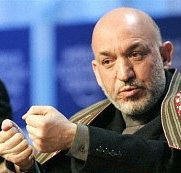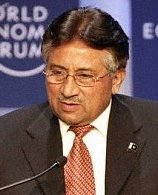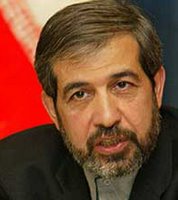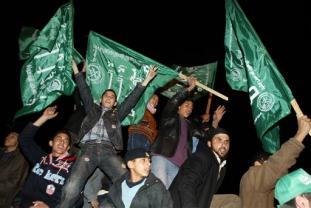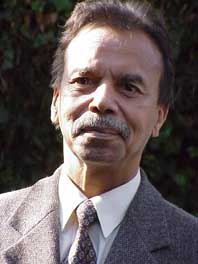Spain's prime minister may have received a warm welcome from some when he toured Mellia, but his actions drew protests and a rebuke from Morocco, which has long awaited the return of the territory from Spain. The only thing between Morocco and its claimed territory are fences fortified with razor wire. Unfortunately the enclaves have beccome a transit point into Europe for Sub-Saharan Africans trying to escape poverty.
Melilla was the site of a humanitarian crisis last year when waves of destitute Africans tried to cross over from Morocco. Melilla and Sebta, a city farther west along the Mediterranean coast, are still in Spanish hands despite being in North Africa and realistically part Morocco.
Zapatero's trip is the first by a fully empowered Spanish prime minister since Adolfo Suarez visited the enclave in 1980. Zapatero also will visit Sebta during his two-day trip. Spanish King Juan Carlos has never traveled to the cities.
According to the Spanish press, African immigrants cheered Zapatero when he toured a refugee camp, applauding as Zapatero walked amid rows of barracks-style housing units and stopped to chat with inmates. Some immigrants demanded "Papers! Papers!" - an allusion to the almost impossible hope of receiving residency permits.
Hundreds of immigrants stormed the border in September and October here and in Sebta. Eleven people died in clashes with security forces.
A Moroccan government spokesman called the visit "inappropriate" but said it would not damage relations with Spain. "Ties between Madrid and Rabat are excellent, and this visit should not hurt the good quality of relations," Nabil Benabdallah is reported as saying.

But on the Moroccan side, Moroccans protested the visit, slowing down traffic at a busy border crossing with Melilla. The rally was called by the nationalist Moroccan Liberal Party, which considers Melilla and Ceuta to be occupied cities.
Zapatero visited the immigrant holding camp, ground zero of the humanitarian crisis last year, and pledged the Spanish government's firm support for Melilla as a Spanish city.
"I reiterate the government's commitment to the people of Melilla," Zapatero said in a speech, unveiling plans for a new hospital, two new schools and other government spending in the crowded city of 70,000.
"The government is very conscious of the singularity of Melilla, which needs special attention."
Zapatero's detractors in Spain deemed his advance notice to the Moroccan government as if the Spanish government asked Morocco for permission to visit the two seaports, which have been controlled by the Spaniards for over five centuries.
Arabic-language daily Al-Ittihad Al-Ichtiraki says that “the visit puts our friend Zapatero in contradiction with the policy of good neighbourliness and mutual trust.”
The paper, which belongs to the leading Moroccan party – the Socialist Union of Popular Forces (USFP) – added that the Spanish prime minister should have worked “towards ending colonisation rather than bolstering it.”
It also stressed the urgent necessity of bringing to a halt the “colonial process that has haunted those two Moroccan seaports,” as both Morocco and Spain collaborate to build a prosperous conflict-free Mediterranean area.
Morocco wants Melilla and Sebta back, but Zapatero has stressed the cities' status "is not and will never be up for discussion." Newspapers in the African nation denounced the visit as provocative. The visit "is badly perceived in Morocco," wrote Le Matin du Sahara.
"The fact that a Spanish head of government makes ... an official visit to the fortified posts that are the object of a territorial disagreement with a neighboring ally country, is in itself a source of major concern," wrote L'Opinion, the paper of nationalist conservatives of the Istiqlal party.
The on-line journal Morocco Times says:
By visiting the two occupied towns, Zapatero gave a strong blow to the Moroccan-Spanish relations and showed disrespect for the Moroccan people. Whether he had good or bad intentions, his move is regarded as a step that would spark another political crisis between the two countries.
OTHER LINKS:
International Herald Tribune: Zapatero stirs anger of Morocco
LA Times: Spain's Little Piece of Africa
Our Previous Story: Sebta and Melilla
Also see Moroccan News Briefs #7
Tags: Morocco, Fes, Maghreb, Spain



